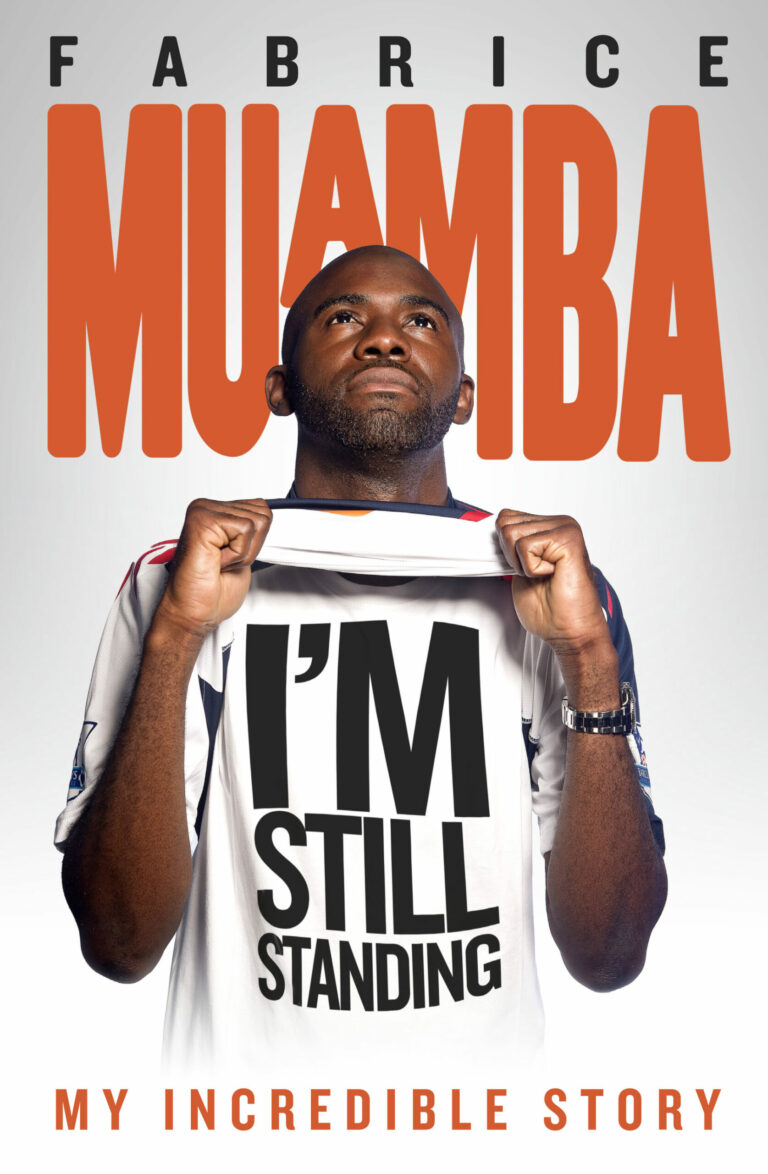I’d only been in the country 72 hours.
Three days after landing back in England following 12 months working as chief sports-sub on the Bangkok Post, Steve Hanrahan, the senior editor at Trinity Mirror Sport Media in Liverpool, walked over to the drinks machine – where I was battling jetlag with a much needed cuppa – and handed me the professional opportunity of a lifetime just seconds after joining the company.
“Have you ever written a book?” he asked.
“Sorry Steve, can’t say I have,” I responded.
“Well,” he grinned, “have you ever written one in six weeks?”
Steve explained that our business development manager, Will Beedles, had been in touch with Fabrice Muamba’s agent and we looked like we were in line to write his autobiography.
Muamba, of course, was the most famous footballer on the planet in March last year when he collapsed and “died” for 78 minutes after suffering a cardiac arrest playing for Bolton Wanderers against Tottenham Hotspur (see below).
I’d watched the incident unfold while sat in a bar in Bangkok, sipping a quiet pint, failing to comprehend what was happening.
Fast forward six months and I’m writing his book.
How did that happen?!
Talking to Steve, two things quickly became apparent.
Firstly, I was chosen to ghost-write it because of my previous experience of turning around super-fast copy and secondly, time was not just of the essence – it was everything.
Before moving to Bangkok I had worked for Hayters Teamwork and then, latterly, the Wardle Press Agency; companies that specialise in providing Premier League copy to the national press.
I would regularly go to a football match and represent three or four different titles at the same time, writing tailored, bespoke copy for each one during the game.
In other words, I was used to writing in completely different styles under extreme time pressure.
But nothing as complicated or as high-profile as this.
If, with the clock ticking, you get the name of a footballer taking a corner-kick wrong you will generally be forgiven. Tomorrow is a new day, nobody will remember.
But Fabrice’s story was going to be a book – an actual, proper book – and it was going to be scrutinised, reviewed, publicised and pored over by the general public.
This was big time stuff.
And I had just 42 days to produce the goods.
Brutal but effective
Fortunately, the process itself – sleepless nights aside – was as easy as these things can be, especially with the deadlines involved.
Fabrice himself was fantastic and fully understood the time restraints and the need to be completely frank, completely honest and – perhaps most crucially – completely punctual and focused.
He would turn up early – asking for nothing more than a hot chocolate – and he was immediately into that day’s subject.
I broke his life down into various different categories beginning with his upbringing in Congo, his move to the UK, meeting his wife Shauna, getting into the Arsenal set-up, moving to Birmingham and Bolton, his collapse, his recovery and where he goes from here.
We were both learning as we went along but we soon settled into a daily rhythm. I would interview him for three hours in the morning, spend the afternoon transcribing the tape before doing an initial polishing and shaping of his words well into the small hours of the morning.
I would then snatch three hours’ sleep and the process would begin again.
It was brutal but effective. The word count soon increased and thanks to the help from Steve and (especially) my editor Paul Dove it soon became clear that we were on track and coming up with some fantastic stuff.
The role Paul played in the book cannot be underestimated. He held my hand throughout the process, he took my initial thoughts and added some sparkle and shine, he reassured me when I felt like I was sinking underneath the words, the timetable, the pressure, the expectation and he remained as cool and as calm as could be.
After going over Fabrice’s story once, we then returned, in even finer detail, to every angle/section for a second, third, fourth and fifth time, determined to elicit as many memories and colour from his life as possible.
Paul and Steve were fantastic at reading the drafts and picking holes in certain areas and recommending what needed to be revisited or reworded. I found that I was so immersed and so “close” to the process that I couldn’t keep or gain an objective sense on the copy we were creating. However, Paul and Steve’s experience, expert eye and distance from the raw material ensured they could grasp the bigger picture more effectively and ensure we delved as deep as we needed to into Fabrice’s life.
As well as their help, the other bonus when it came to getting a grip on what happened when Fabrice collapsed on March 17 was the level of co-operation from those involved in his treatment.
One of the hurdles involved with telling Fabrice’s story was the fact that he wasn’t around for the most interesting part of it.
He was dead.
That meant we had to find a way of describing what happened from a different perspective and it also meant returning to old-fashioned journalism, namely hitting the phones and speaking to those who helped save his life.
Insane pressure
Every single person integral to the story gave me all the time in the world to explain, minute by minute, what happened during the time Fabrice was dead and what happened in the hospital after that to ensure he walked out in one piece.
We are talking here of the smartest and busiest people in the country – world renowned cardiologists and overworked paramedics – all willing to give up two, three or four hours of their time to explain to a journalist with a B-grade GCSE in biology what a ventricular tachycardia was, how a defibrillator works, why Amiodorone is given to cardiac arrest victims, why a cath-lab can save someone’s life.
My notebook looked like something from Casualty by the end and at first it was as confusing as it was inspiring. All these doctors, all these phrases, terms, conditions, treatments.
But, slowly, the fog lifted and the book took shape.
The generosity did not stop there either. Bolton Wanderers effectively opened their front door, put the kettle on and told me to stay for as long as I wanted.
The then manager, Owen Coyle, was a fortnight from being sacked.
He was under insane pressure to get results but he invited me into his office and gave me three uninterrupted hours, offering a brilliant and eye-opening look at Fabrice’s collapse from his perspective.
The club chaplain Phil Mason and chief press officer Mark Alderton also gave me as much time as I needed. Phone numbers for people who were there on the night of Fabrice’s collapse rained down like confetti. Nothing was too much trouble for anyone.
They, like me and like the rest of the world, were just glad to see he was still alive.
As we careered towards the deadline, the pressure obviously intensified but by then I’d become acclimatised to it. There was nothing else in my life but Fabrice Muamba, Fabrice Muamba and, indeed, Fabrice Muamba.
But we got there. The book was subbed, edited, approved, polished and signed off with four days to spare.
42 days to write a book? We did it in 38.
Fantastic reception
As for how the book has been received, well I don’t think any of us could have dreamt it would be as positive as it has been.
I made a vow to myself that I wouldn’t read any reviews or take note of any praise or criticism. The book had been written, start to finish, in less time than kids get off for their summer holidays. Cricket World Cups have taken longer to complete.
We had given it our all, we had done everything we could, and we had produced something that we were all inordinately proud of.
If anyone wanted to criticise us for pulling off the impossible job then that said a lot more about them than us.
So the theory went. The decision not to look at any reviews laster approximately eight minutes. But we are all glad that it did.
The book has been received fantastically by football fans, football players, the wider general public and by the many journalists and authors who have been in touch to tip their hat at its content and its production.
Now the dust has settled and we can look back on that time I know that Fabrice, myself and everyone else involved in the book are proud, excited and slightly baffled about how we did it.
And, not unlike Fabrice’s story, while parts of it might have been terrifying, ultimately it turned out great thanks to the inspirational hard work of many people pulling in the same direction.
I can’t wait to write another one.
But can I have longer than six weeks next time please?
Fabrice Muamba I’m Still Standing, Trinity Mirror Sport Media, paperback and ebook on sale now.









